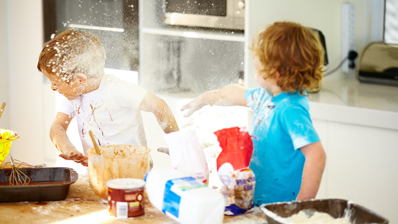Second-born children really are little monsters, according to science

No, it's not just you, it turns out second-born children really are more of a handful than your eldest - and there is a scientific reason why.
According to a study from the Massachusetts Institute of Technology, second-borns children, especially boys, are more likely to be little monsters and get in trouble than the first-born.
Researchers looked at sets of data involving tens of thousands of brothers across Denmark and Florida and found that second-born sons are not only more likely to face disciplinary actions, truancy at school and juvenile delinquency, but even adult crime and imprisonment.
"We find that second-born boys are substantially more likely to exhibit delinquency problems compared to their older sibling," the authors of the study revealed.
"In families with two or more children, second-born boys are on the order of 20 to 40 per cent more likely to be disciplined in school and enter the criminal justice system compared to first-born boys."
While researchers have previously suggested that first-born children have higher IQs, perform better in school and earn more money, this new report is among the first major studies to make a compelling case that second-born children are more at risk to become troublemakers.
The study suggests this may be caused by a number of factors, including the second child's need to compete for attention, and the presence of such a young role model in the second-born child's life.
Parents are also often more invested in their first-born’s upbringing. Once a family’s second child arrives, parents tend to be less vigilant.
"Second-born children tend to have less maternal attention than do their older siblings," the study read. "The firstborn has role models, who are adults. And the second, later-born children have role models who are slightly irrational 2-year-olds, you know, their older siblings."
Although not every family will have a troublemaker as their second child, the report suggests that keeping an eye on their children could be beneficial overall.
It may also answer the question many parents secretly ask: "why can't you be more like your older brother?"
Take your Radio, Podcasts and Music with you



